From Generation Game to Strictly, Sir Bruce Forsyth made his mark on British TV
He was born on February 22 1928.

Sir Bruce Forsyth was one of the most talented, versatile and popular TV entertainers of his generation.
He was knighted in the Birthday Honours of 2011 after his supporters, including many MPs, had campaigned for several years for him to be awarded this honour.
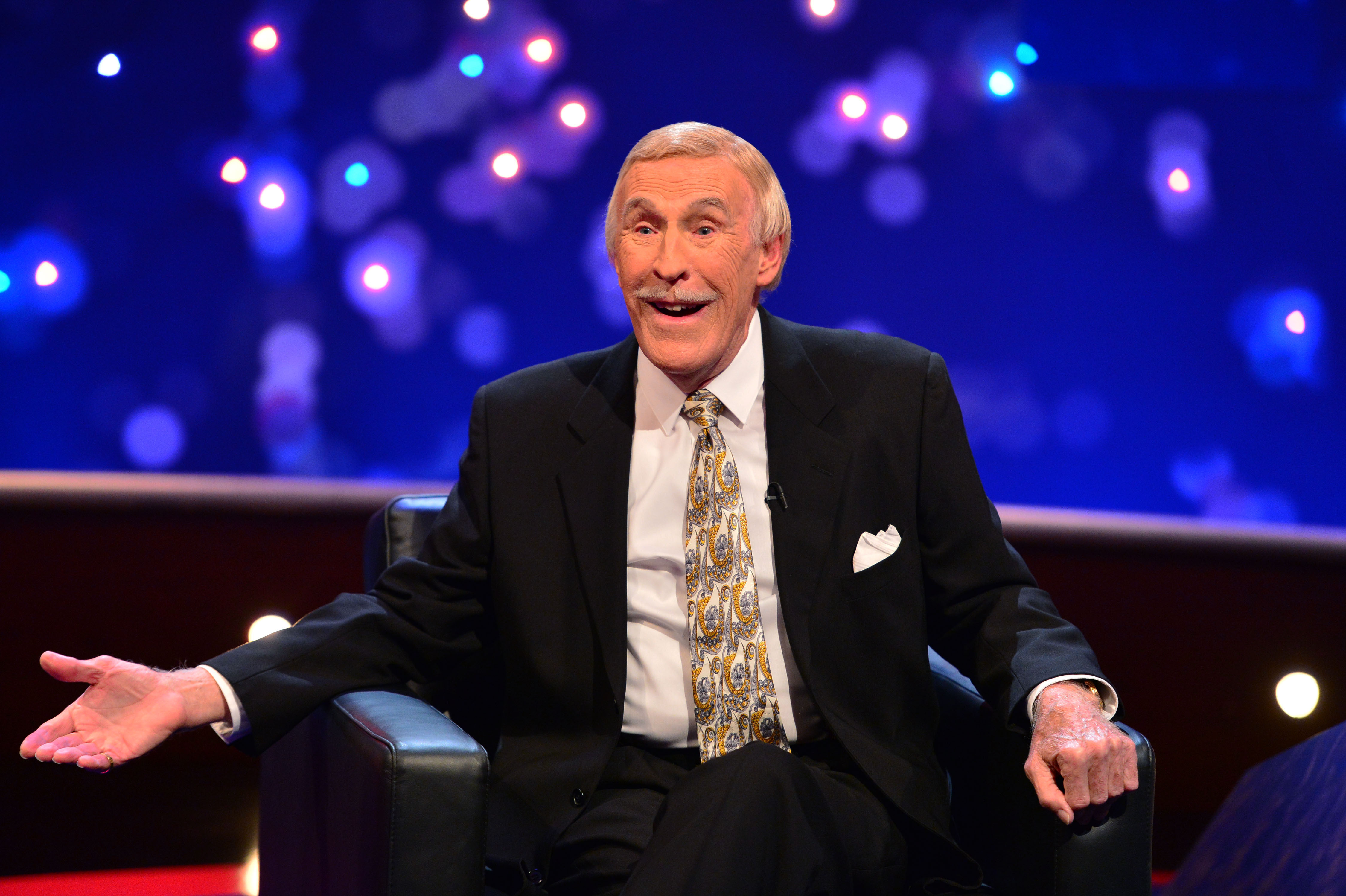
He was still performing with as much zest as ever right into his 80s.
Indeed, as a sprightly, lithe 80-year-old, with the slogan “keep on dancing”, he was hosting the huge BBC TV hit, Strictly Come Dancing. He demonstrated that, even at that age, and beyond, he could still sing with gusto and dance with professional verve.
In that show, which became a national Saturday-night institution, he regularly drew attention to his age, modifying one of his already famous catch-phrases to “I’m not doddery – doddery I am not …” inciting the audience to join in.
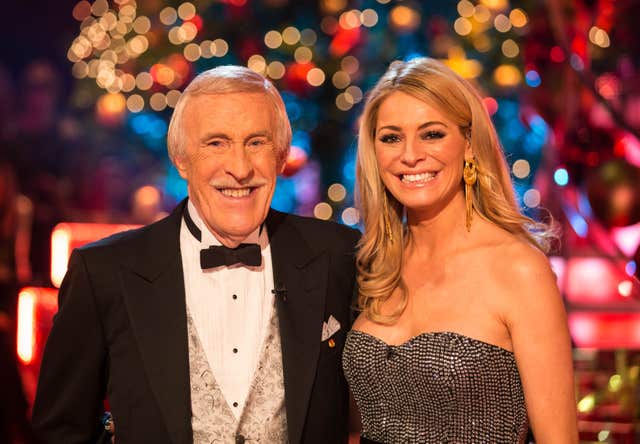
His energy was as phenomenal as his catch-words were infectious. Nearly every performance began with the greeting: “Nice to see you … to see you nice!” Or when a contestant in one of his many game shows excelled himself, Sir Bruce would chant: “Didn’t he do well?” He was no less renowned for his poses as a man of muscle.
TV companies had no fears about their ratings when Sir Bruce was on the screen. He excelled as a singer, a dancer and a comedian and was also – although this was not widely known – an accomplished jazz pianist, often appearing with Sammy Davis Jr.
Even into his 70s and 80s, he danced with as much vigour as a man half his age and although he good-naturedly teased his contestants on the game shows, with his rapid-fire wit, he was always careful never to humiliate them.
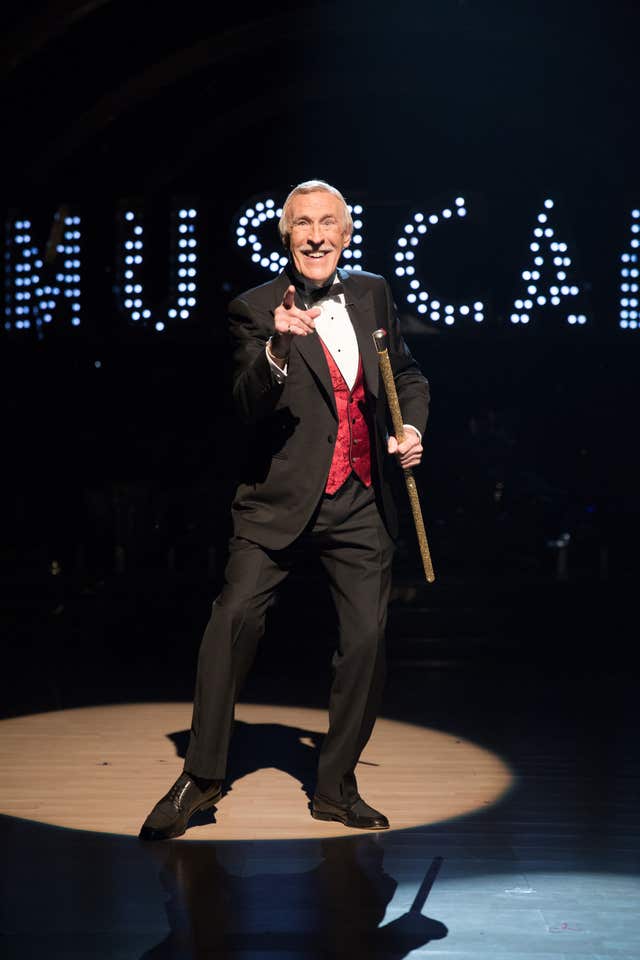
At the age of 14, he left the family home and was touring Britain as The Boy Bruce – The Mighty Atom. He made his broadcasting debut in 1942 and was an instant hit. He told one BBC interviewer: “I want to be famous and buy my mum a fur coat.”
He played the ukulele, the accordion and the banjo with equal prowess and spent some 20 years performing in church halls, sleeping in luggage racks and waiting for the big break. He did a two-year spell at London’s famous Windmill Theatre – “We never closed” – and appeared in several double acts.
When he received the call in 1958 to host Sunday Night at the London Palladium, Sir Bruce was on the verge of leaving showbusiness. He was booked for two weeks, but stayed for five years, by which time he was Britain’s highest-paid entertainer, earning £1,000 a week.
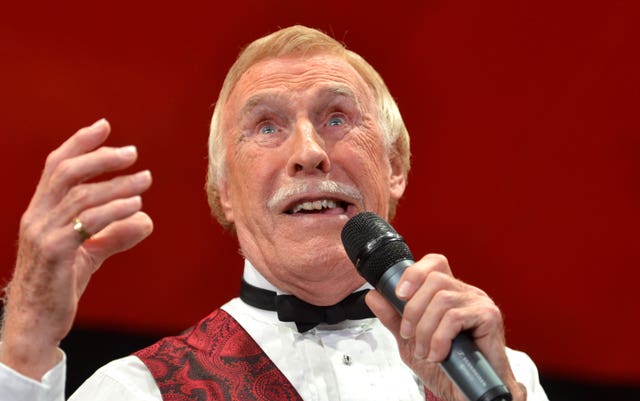
He appeared with many top names, including Tommy Cooper, Dudley Moore, Harry Secombe and Frankie Howerd. This last partnership developed into a series known as Frankie and Bruce. Sir Bruce also regularly appeared in sketches with sports stars, including boxer Henry Cooper, jockey Scobie Breasley, swimmer Anita Lonsborough, former tennis champion Fred Perry and snooker player Joe Davis.
Subsequently, he was to reign supreme at the helm of the BBC flagship show, The Generation Game, from 1971 to 1977 and again at the beginning of the 1990s. At its peak, the show attracted more than 20 million viewers.
And although his television appearances were prolific, Sir Bruce also appeared in several successful films, including Bedknobs and Broomsticks (1971) and Star! (1968).
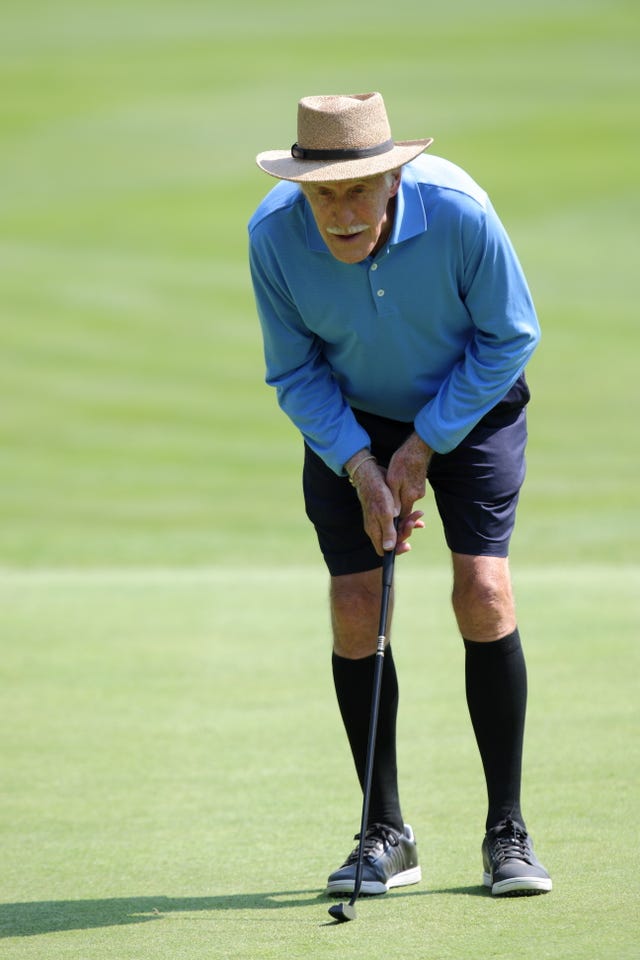
But Sir Bruce had never been more popular. And in 1995, the year after his final Generation Game appearance, he received a Lifetime Achievement Award for Variety and three years later he was awarded an OBE. He was to be awarded a CBE in the Queen’s Birthday Honours List, 2005.
One of his most surprising appearances was hosting an edition of the TV hit show Have I Got News For You in 2003. The show was built round him and included a very politically incorrect item called The Iraqi Play Your Cards Right. Ian Hislop, one of the regulars on this programme, said later that only Sir Bruce could have got away with this – and successfully.
And in 2004, when in effective semi-retirement, Sir Bruce was brought back to host a new version of an old programme: Strictly, Come Dancing. This was a huge tribute to a man whose essential style of entertainment, although basically unchanged, had remained as fresh and popular as ever it was. He hosted that programme with all the verve and energy of a man half his age.

And he boasted, with some justification, that his performances appealed not only to the older generation, but to youngsters as well.
His comedy, although often brash, was never downright vulgar. And Sir Bruce disliked the cult of “reality TV”, saying that it involved no “performance” as such and was often offensive.
He once said: “Although I am cheekier now than I was 40 years ago, I’m not downright dirty. It really is lavatory humour and sexual where it is not even a double entendre. It’s just dirtiness for the sake of it. I don’t do that and a lot of people respect that.”

Sir Bruce, the frontman of Strictly Come Dancing since it launched, pulled out of a live show in October 2013 after being taken ill with flu.
Before that, the much-loved star last missed a programme through illness in 2009.
Sir Bruce announced he was leaving Strictly Come Dancing in April 2014.
Show producers regularly scheduled rest weeks during the series to help Sir Bruce cope with the workload of fronting three months of weekly live programmes.
He was a crowd-pleaser to people of all ages and at the age of 85, Sir Bruce stepped out on to the stage at Glastonbury in 2013 to a standing ovation where he performed a host of classic songs and teased the Rolling Stones frontman Sir Mick Jagger.
He returned to the stage for the first time in nearly two decades with his live one man show at the London Palladium in March 2015, where he was hailed as “a legend” and greeted with a standing ovation.
Later that same year, Sir Bruce suffered a serious fall at his Surrey home.
The entertainer underwent surgery and, after tests were carried out, doctors discovered that he had suffered two aneurysms.
Sir Bruce’s wife, Lady Wilnelia, later said that the TV veteran was finding it difficult to walk and that the operation had sapped his energy, but that he was in “incredible shape mentally”.
“The operation took his energy because of his age, there’s no question about it. Some days are better than others. On the not-so-good days, he tries to rest,” she told the Mail on Sunday’s You magazine.
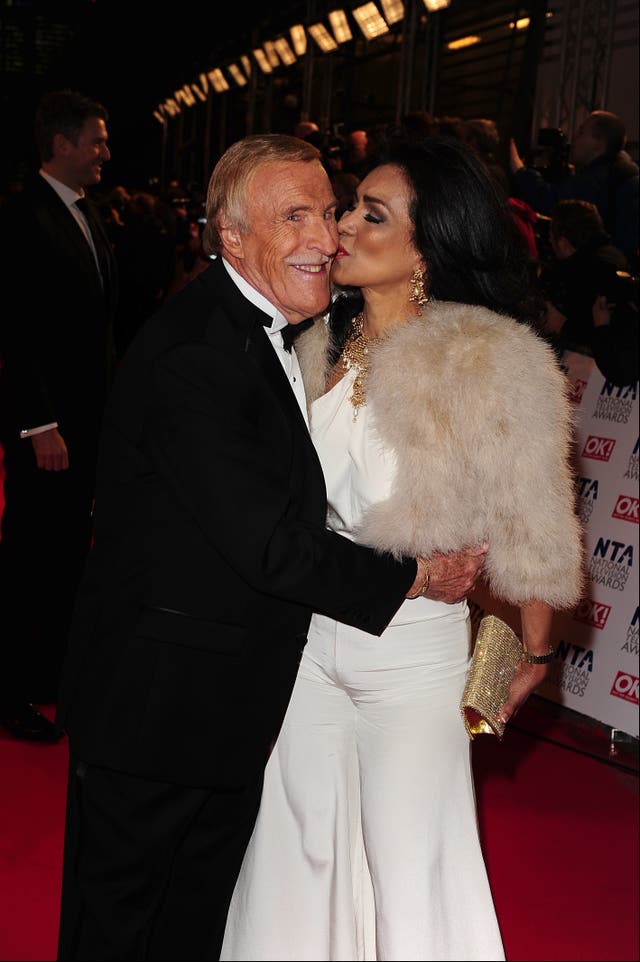
Reports in 2016 also claimed the TV stalwart would be announcing his retirement from the entertainment industry but his manager said that Sir Bruce had made “no formal or informal decision” about leaving showbusiness.
The star once gave his thoughts on death, saying: “As I get nearer to it, I fear it less because with the tiredness one gets at times, you think, ‘Is it just like having a nice long sleep?’ I wouldn’t say I fear it.
“I think I’ll be completely at peace when it does happen to me because I’ve been so lucky. I’ve had a wonderful career,” he told Radio Times.
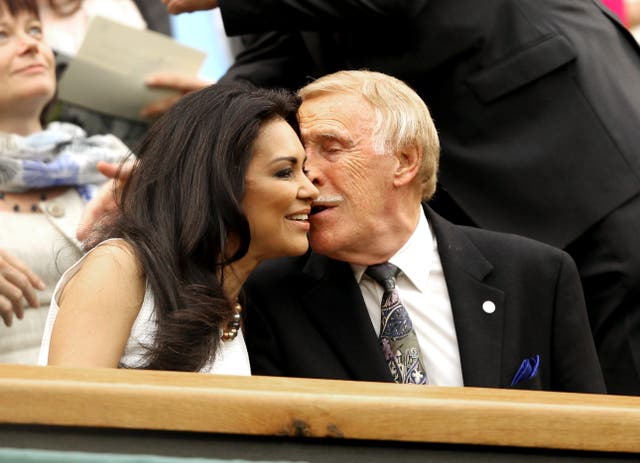
“I’d loved to have bought my father a Rolls Royce because he was so into mechanics. But it doesn’t always work out that way. But I couldn’t have had a better mother or father, they were so supportive in every way,” he told the Radio Times Festival.
He also recalled the pain his family went through, when his brother John died in the Second World War.
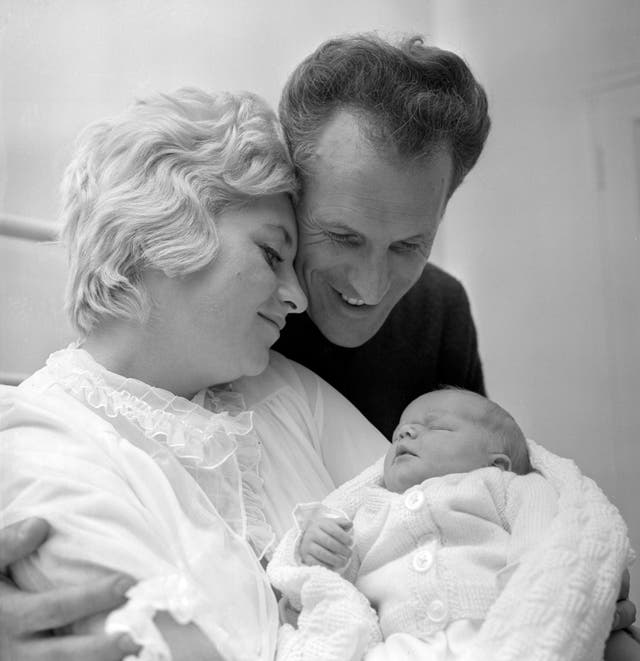
In 1973, he married his television co-host Anthea Redfern and would regularly ask her on screen to “Give us a twirl” and “What do you do, my love?”. That marriage produced two daughters, but was dissolved in 1982.
In 1983, he married the Puerto Rican former Miss World, Wilnelia Merced, who would later become Lady Wilnelia. There was one son from this marriage.
In his later years, Sir Bruce spent much of his time relaxing in Puerto Rico. He was an avid golfer, proclaiming in Who’s Who that his handicap was 10. He regularly played at Wentworth Golf Club, very close to where he lived.





